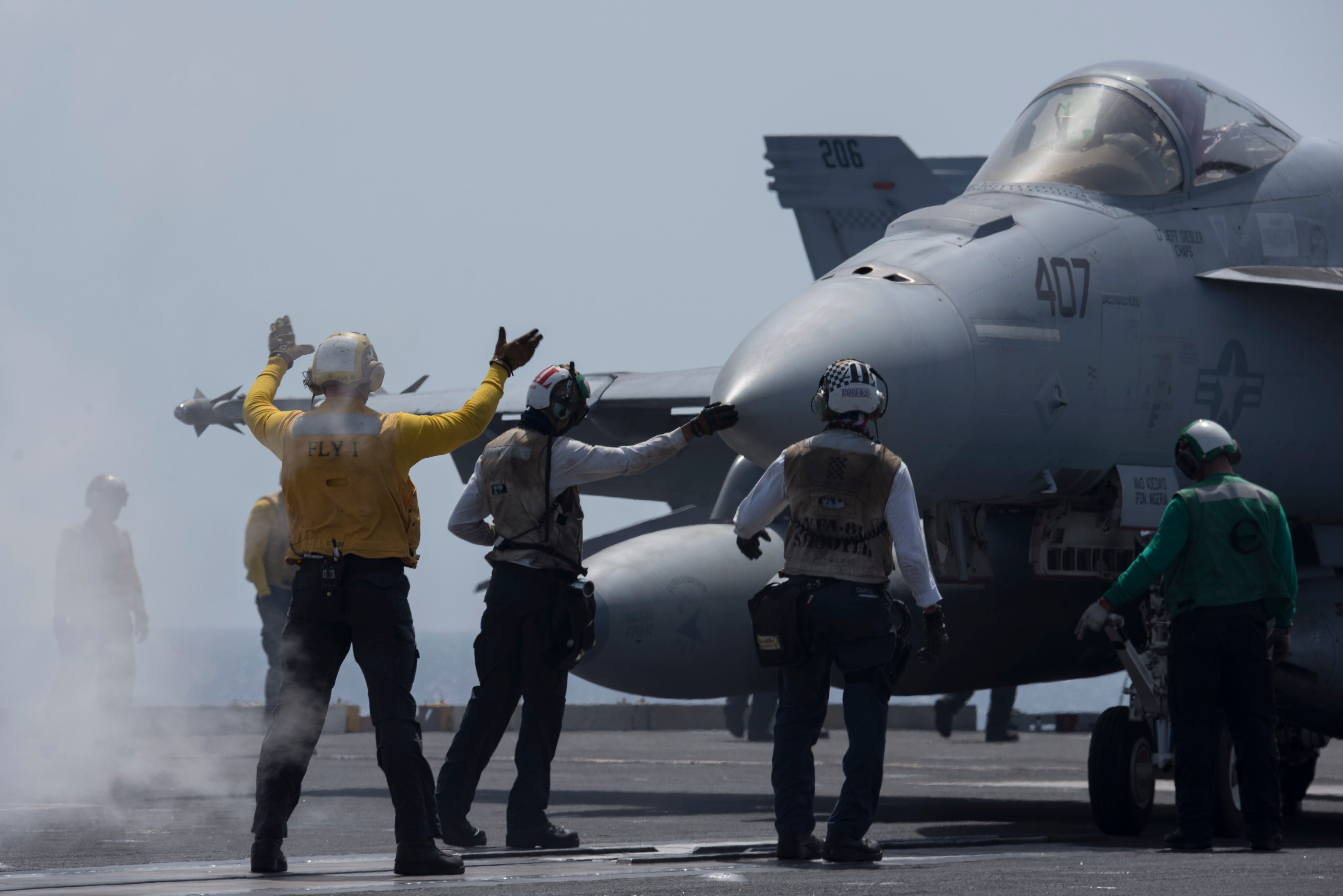NAVAL BASE NORFOLK, Va. ― If the Navy’s going to win the next war against a great or rising power, America’s chief petty officers must prepare deckplate sailors to fight.
That’s the message Fleet Master Chief (SW/IW/AW) Russ Smith told chief petty officers during a Friday CPO call here.
His words come in the wake of warnings from Chief of Naval Operations Adm. John Richardson, who tells sailors that the military is facing rising competition with peer and near-peer nations.
"The CNO’s message, if you haven’t heard it or don’t understand it, means that there are navies out there that have very capable ships, submarines and aircraft that can hurt us,” Smith said. “So the kind of warfare we need to start preparing for is very different than the kind we’ve faced over the past 17 years — we’re likely to face maritime threats in the future the likes of which we haven’t faced since World War II.”
Bottom line: Prepare yourselves and your sailors now because all of your lives depend on it.
The interim master chief petty officer of the Navy asked for a show of hands — how many chiefs recall “refresher training,” when crews would got to sea to practice core sailor skills such as damage control and firefighting until those often complex concepts became habit?
"It’s about developing the muscle memory after countless receptions and drills," he said. "That muscle memory you get from constant drills lasts a lifetime and that’s the kind of mentality we need to have on our ships and in our crews, today.”
RELATED

Survival at sea against a ruthless foe often comes down to the most elemental skills, those habits that will keep Navy vessels and their crews in the fight. And teaching those lessons is the mission of the Navy’s chiefs.
“We got caught flat footed at the beginning of World War II,” Smith said. “It took us a long time to learn during World War II that our survivability and ability to win depended on how well we did those drills and how much of that had simply become muscle memory.”
Smith urged them to make sure their sailors were ready to fight and survive and fight again at all times.
“It’s something that you as leaders need to remember when it’s Friday at noon and you want to tell your troops to get a head start on the weekend with their families,” he said. “That’s important, too, but maybe before you send them on their way, you drill just that little bit more.”
Mark D. Faram is a former reporter for Navy Times. He was a senior writer covering personnel, cultural and historical issues. A nine-year active duty Navy veteran, Faram served from 1978 to 1987 as a Navy Diver and photographer.
